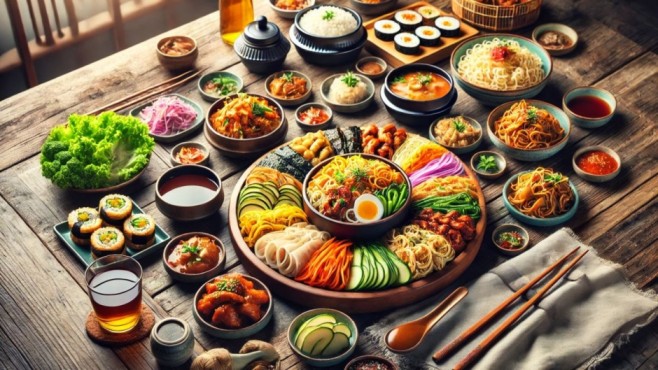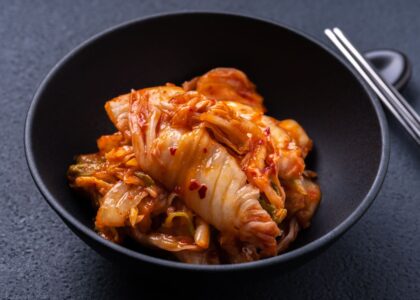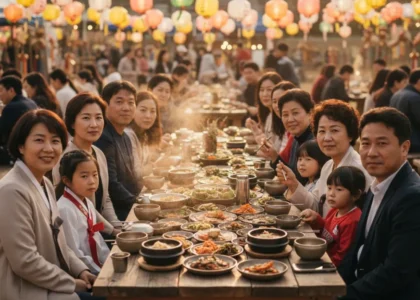Korean cuisine is celebrated worldwide for its bold flavors, nutritious ingredients, and deep cultural heritage. From kimchi to bibimbap, each dish reflects tradition and craftsmanship. It’s a must-try for every food lover. Whether craving street food or ramen, exploring the Best Korean food requires mindfulness. Respect for its cultural origins enhances the experience.
Ethical dining means supporting authentic Korean restaurants, choosing sustainable ingredients, and appreciating traditional cooking methods. If you’re searching for Korean cuisine near me, here’s how you can indulge in delicious Korean dishes while honoring their history, flavors, and significance. Enjoying Korean food responsibly ensures a more meaningful and authentic culinary experience.
1. Choose Authentic and Ethical Restaurants for the Best Korean Food
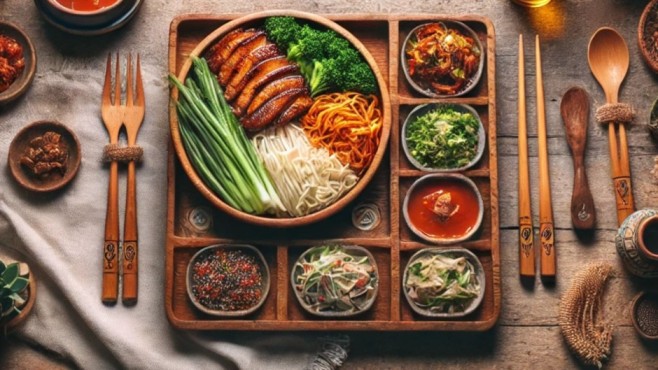
One of the best ways to enjoy top Korean food is by dining at authentic Korean restaurants that prioritize ethical sourcing and sustainability. Many Korean restaurants and kimchi restaurants focus on using fresh, high-quality ingredients while supporting local farmers and responsible food production.
When searching for Korean places near me, look for establishments that emphasize fair wages for workers, minimal food waste, and eco-friendly practices. Authentic restaurants often follow traditional recipes, preserving the true essence of Korean cuisine while ensuring ethical dining.
Supporting these restaurants helps maintain cultural integrity and sustainability in the food industry. Whether you’re enjoying kimchi, bibimbap, or Korean BBQ, choosing the right place enhances both your culinary experience and the impact on the environment.
Top 5 Must-Visit Tourist Spots Near Wang House Laxmi Nagar! CLICK HERE TO KNOW MORE.
2. Support Local and Ethical Best Korean Food Stores
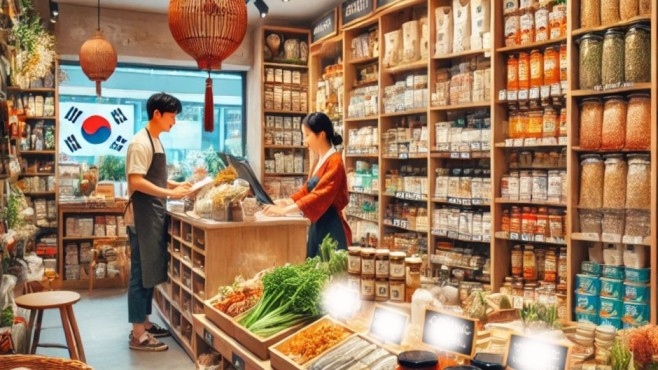
If you love cooking at home, visiting a Korean store near me is a great way to find authentic Korean ingredients while supporting ethical businesses. Many Korean stores offer a variety of essentials, from fermented kimchi and gochujang (Korean chili paste) to organic Korean spices and high-quality rice.
Choosing stores that stock organic Korean ingredients and responsibly sourced products ensures better taste and promotes sustainability. Ethical sourcing helps reduce environmental impact and supports fair trade practices. When shopping for Korean cuisine essentials, look for locally-owned stores that prioritize traditional methods and eco-friendly packaging. By supporting ethical Korean stores, you contribute to the preservation of authentic flavors while making a positive impact on the food industry and the planet.
3. Try Plant-Based Best Korean Food
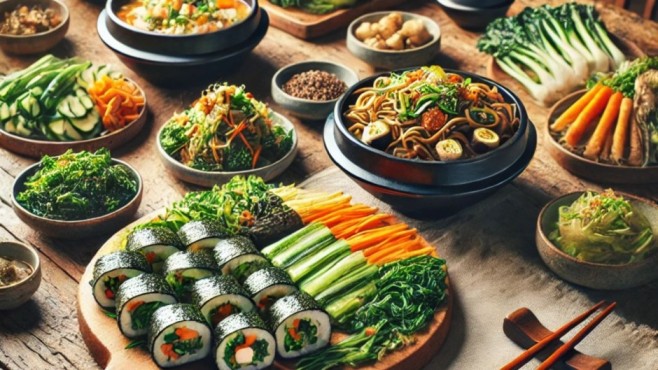
Korean cuisine offers a variety of flavorful, eco-friendly vegetarian dishes. Whether you’re exploring traditional South Korean food or experimenting with Korean dinner dishes, incorporating plant-based meals is a great way to enjoy authentic flavors while reducing your environmental impact.
Many Korean dishes naturally emphasize vegetables, tofu, and fermented ingredients, making them perfect for a sustainable diet. Some must-try vegetarian Korean dishes include kimbap (Korean seaweed rice rolls), japchae (stir-fried glass noodles with vegetables), and doenjang jjigae (soybean paste stew).
These dishes highlight Korea’s culinary diversity while offering a nutritious and ethical alternative. Next time you’re looking for Korean cuisine near me, try opting for a plant-based meal to experience its rich taste and sustainability benefits.
Why Vegetable Ramen is a Must-Try for Fans? CLICK HERE TO KNOW MORE.
4. Be Mindful When Ordering Seafood and Meat
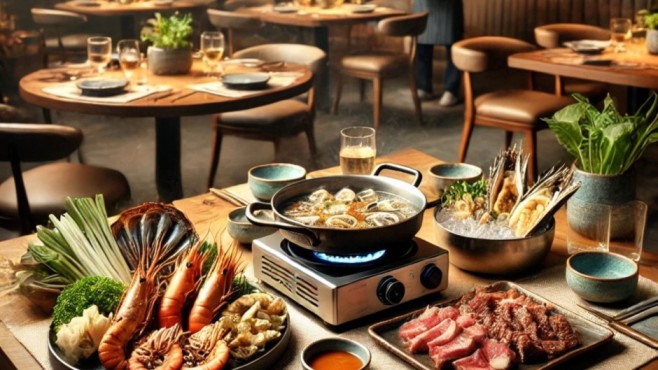
While enjoying South Korean cuisine, it’s important to be conscious of where your meat and seafood come from. Many of the most popular Korean food options, such as bulgogi (marinated beef) and samgyeopsal (grilled pork belly), rely on high-quality meat.
However, ethical consumption means choosing restaurants that prioritize free-range meat and sustainably sourced seafood. When searching for good Korean food, check if the restaurant partners with responsible suppliers who follow humane farming practices and avoid overfishing. Supporting such establishments not only enhances your dining experience but also helps promote sustainability in the food industry.
Whether you’re enjoying a Korean BBQ or a seafood hotpot, making mindful choices ensures that you respect both the environment and Korean culinary traditions.
5. Learn the Cultural Significance of Each Dish
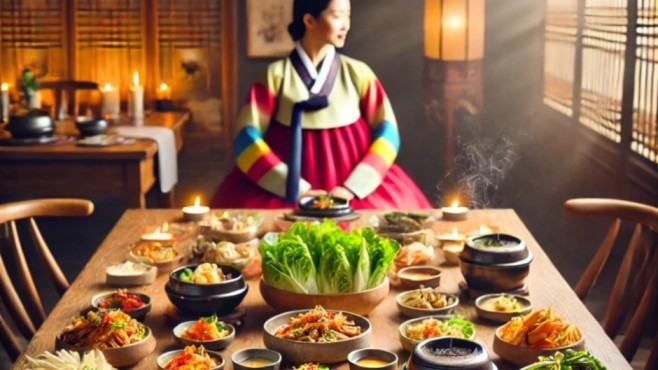
Respecting and understanding the cultural history behind Korean traditional food is essential for truly appreciating its flavors. Korean cuisine is deeply rooted in history, with many dishes passed down through generations, reflecting the country’s heritage and communal dining traditions.
If you’re exploring a Korean dishes list, take the time to learn about their origins and significance. For example, kimchi is more than just a side dish—it is a fundamental part of South Korean cuisine, symbolizing preservation, resilience, and community. Similarly, dishes like Tteokbokki (spicy rice cakes) and bibimbap (mixed rice with vegetables) have historical and regional importance.
By understanding the stories behind each dish, you gain a deeper appreciation for Korean cuisine and its cultural value.
How Are Korean Festivals Celebrated in India? CLICK HERE TO KNOW MORE.
6. Reduce Food Waste
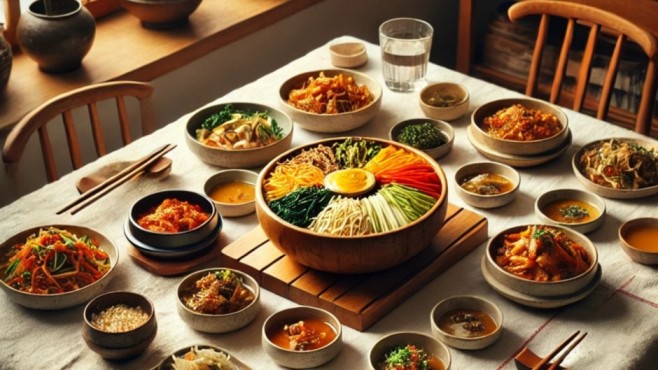
Food waste is a significant global issue, and reducing it starts with mindful portion control. Whether you’re dining out at a Korean cafe or cooking at home, it’s important to order or prepare only what you can consume.
Many traditional Korean delicacies, such as bibimbap (mixed rice) and banchan (side dishes), are designed to creatively utilize leftover ingredients, making them both practical and eco-friendly. When dining at a Korean restaurant, consider sharing dishes to avoid leftovers, or ask for smaller portions if you’re unsure.
At home, incorporating leftover vegetables or meats into dishes like kimchi jjigae (kimchi stew) or japchae (stir-fried noodles) helps minimize waste while still enjoying delicious meals. Being mindful of food waste not only supports sustainability but also honors the thoughtful nature of Korean cooking.
7. Enjoy the best Korean Food While Supporting the Community
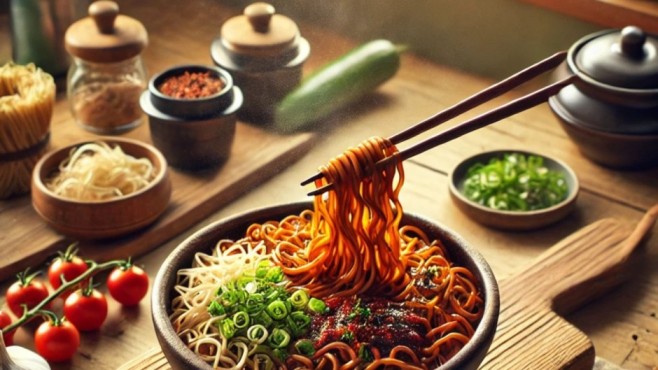
For the Best Korean food lovers, engaging with the community can truly enhance the dining experience. Many Korean restaurants host cultural events, cooking classes, and traditional music nights, offering a deeper connection to the food and culture.
If you’re a Korean music lover, visit restaurants that play K-pop or feature live performances. This can make your dining experience even more memorable. By supporting these community-focused establishments, you enjoy authentic Korean dishes. You also contribute to the preservation of Korean culture.
These events allow you to learn more about Korean traditions, try new dishes, and interact with fellow enthusiasts, creating a richer, more fulfilling experience beyond the meal itself. Supporting local Korean food businesses strengthens the cultural bond and keeps the community alive.
8. Pair Your Meal with Korean Music and Culture
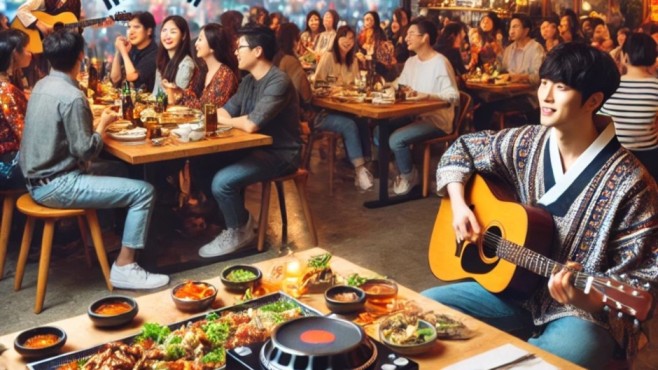
For BTS lovers, Blackpink fans, and K-pop lovers, enjoying a meal at a restaurant that embraces Korean music culture offers a truly immersive experience. Many Korean restaurants integrate K-pop music and performances into their ambiance, creating an exciting atmosphere that complements the flavors of your meal.
Dining at a Korean Music Band-themed restaurant adds a unique cultural touch. You enjoy not only delicious Korean dishes but also the vibrant sounds of Korean music. This combination enhances the cultural experience. It’s a fun way to explore the traditions of the best Korean food. All while indulging in your favorite tunes.
Whether you’re savoring bibimbap or kimchi, the right soundtrack can elevate your dining experience and connect you more deeply to Korean culture.
How are K-pop stars spreading K-food? CLICK HERE TO KNOW MORE.
9. Opt for Homemade best Korean Noodle Food
If you’re craving Korean noodles near me, consider trying handmade versions from authentic Korean restaurants or making them at home. Many instant noodles are filled with additives, but fresh, homemade noodles offer a healthier and more ethical alternative. Not only do they taste better, but they also give you control over the quality of ingredients.
You can find authentic Korean ingredients at a Korean store near me to prepare your favorite noodle dishes, such as jajangmyeon (black bean paste noodles) or ramyeon.
Making these dishes from scratch not only enhances the flavor but also allows you to embrace the cultural and culinary traditions of Korea. Choosing homemade noodles is a sustainable and rewarding way to enjoy the best Korean food at its best.
10. Experience Korean Festivals and Food Events

Korean food festivals offer an excellent opportunity to try famous dishes from South Korea while learning about sustainability. These events often highlight eco-friendly dining practices, showcasing Korean delicacies that focus on traditional preparation methods and ethical sourcing.
From kimchi-making workshops to live cooking demonstrations, you can immerse yourself in Korean cuisine’s rich history. You’ll understand how Korean cuisine has evolved sustainably over time. Attending these festivals lets you sample a variety of authentic dishes. It also provides insight into the cultural importance of food in Korea.
By supporting these events, you help promote ethical food practices and enjoy a memorable experience that celebrates both Korean culture and sustainability.
Want to know about the best Korean cafe in India? CLICK HERE TO KNOW MORE.
Conclusion
Enjoying the best Korean food to try can be a truly fulfilling experience when approached ethically and responsibly. By choosing sustainable restaurants that prioritize ethical dining, supporting local stores that offer authentic Korean ingredients, and embracing plant-based Korean dishes, you not only indulge in delicious flavors but also make a positive impact on the environment and the community. Respecting the cultural significance of each dish and reducing food waste further enriches the experience.
Whether you’re a Korean music lover, K-pop fan, or passionate about Korean cuisine, mindfulness enhances your culinary journey. Next time you search for Korean cuisine near me, choose places that value authenticity and sustainability. Ethical dining practices make a significant impact. Whether it’s a cozy Korean cafe or a vibrant restaurant, choose wisely. Even a home-cooked meal can be an ethical choice. Every bite you take will be delicious and meaningful when you make mindful decisions.

